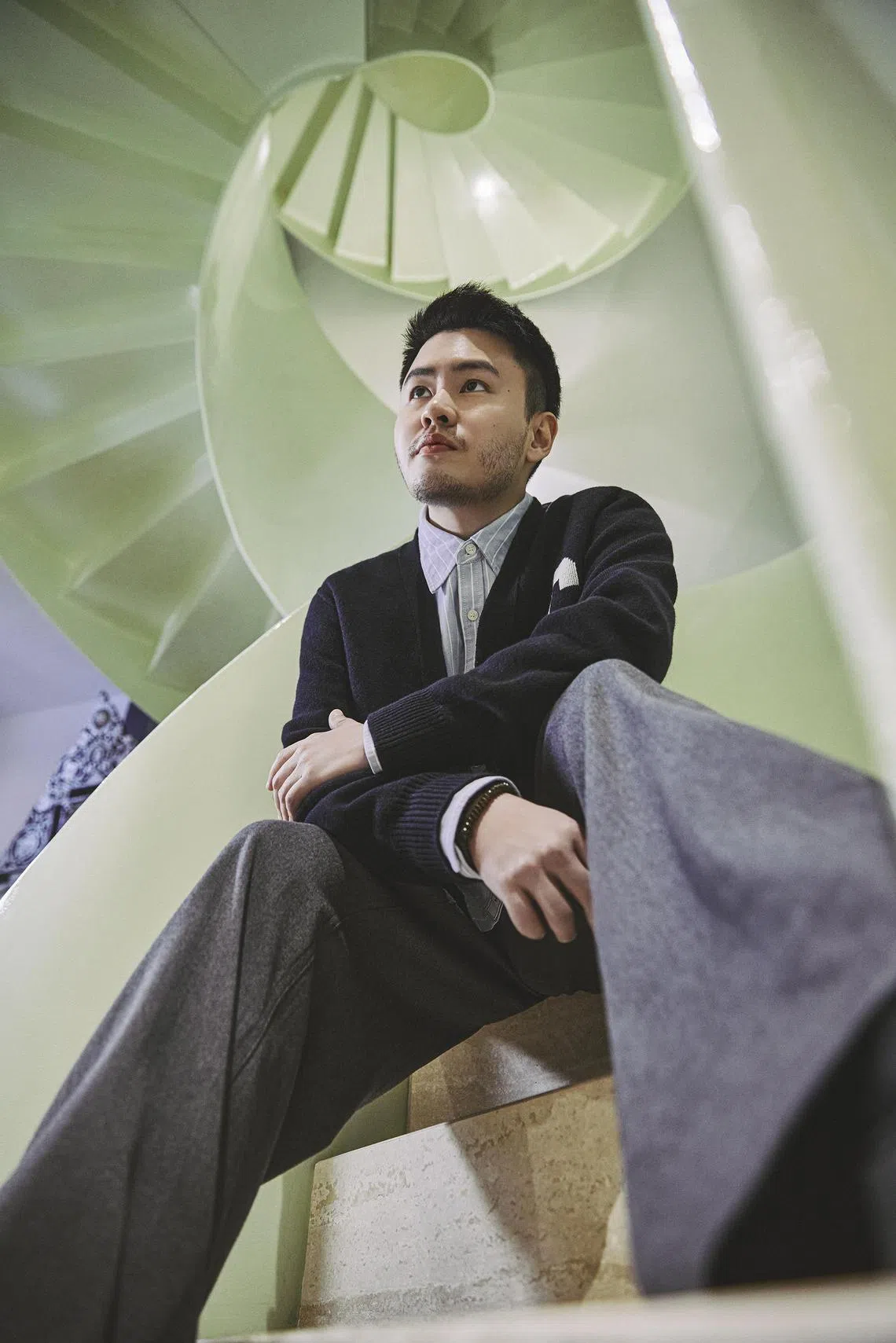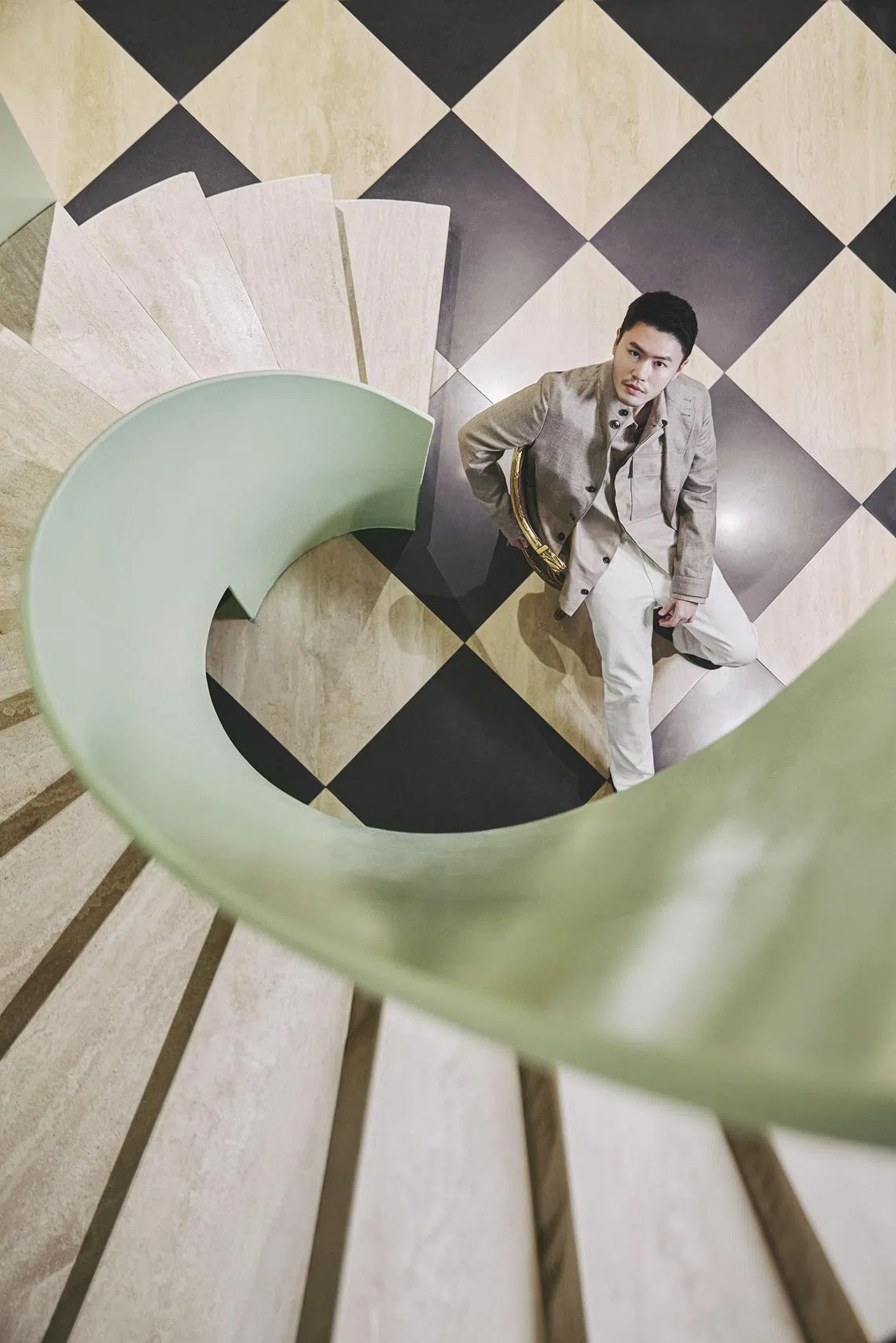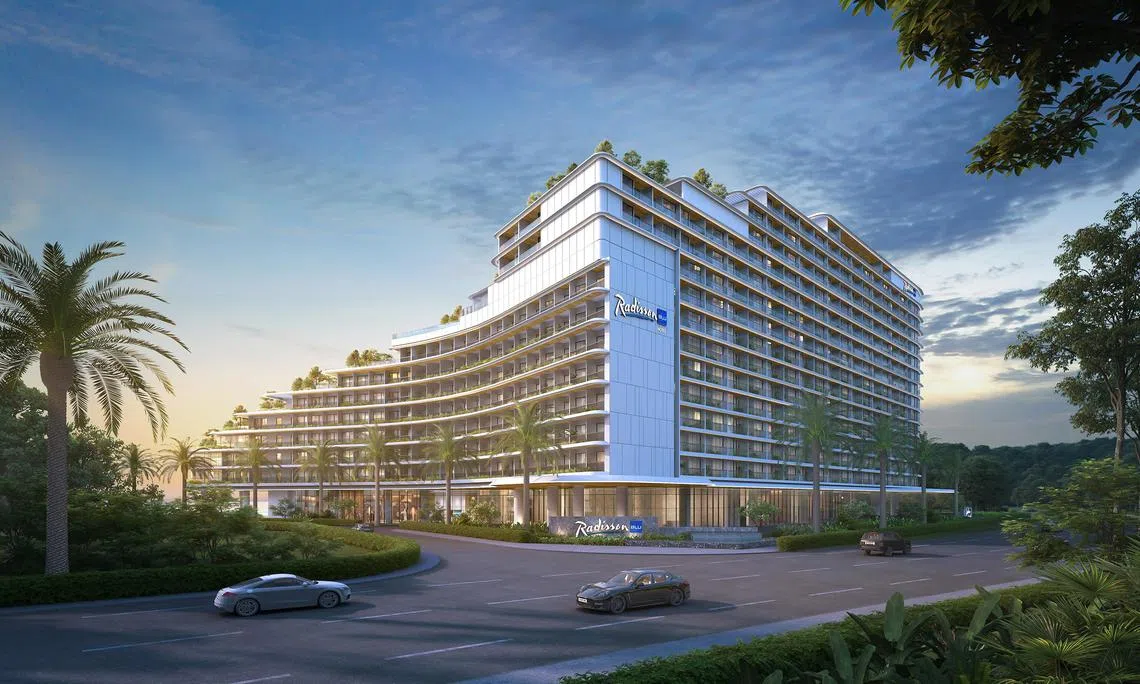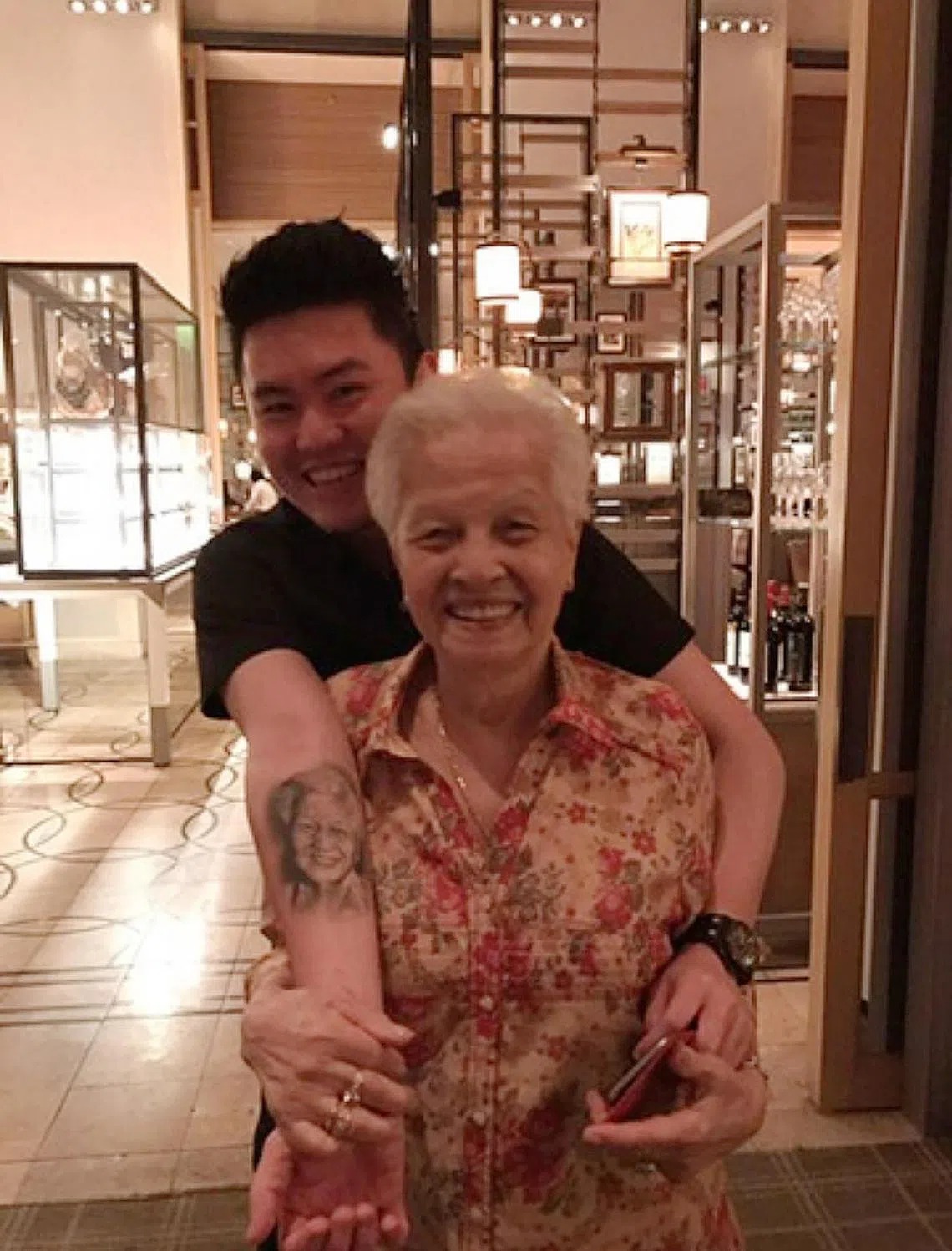Sean Lim: From dishwasher to luxury hotel co-owner
The Singaporean behind Penang’s big hospitality project isn’t just building a resort – he’s rewriting his story

AT A SLEEPY STRETCH OF sand in Batu Ferringhi, Penang – where the last major hotel was built more than 15 years ago – Singaporean entrepreneur Sean Lim is betting on a new kind of beachfront experience. One that blends five-star hospitality with bold food concepts, sustainability features, and the kind of laid-back modernity more often found in Bali than Malaysia’s north-west coast.
“There’s so much life in Penang, but Batu Ferringhi still feels like a sleepy place,” says Lim. “We’re hoping to really change that.”
Together with his partners from investment firm NWD Holdings, Lim is developing what will be Radisson Blu’s flagship property in Malaysia: a mixed-use, 700-key beachfront development comprising 243 hotel rooms and 475 branded serviced apartments. Slated for a 2028 opening, it promises sunset cocktails, sleek architectural lines, and a Bali-style beach bar – a welcome jolt of energy to a strip best known for retirees, locals and medical tourists.
Lim and his partners acquired the last commercially viable parcel of freehold land on Batu Ferringhi’s beachfront in 2018. “If we just built another conventional resort, it would’ve been a shame,” he says. “We want to shake things up.”
With serviced apartments starting from US$250,000 and guaranteed rental yields of 6 to 7 per cent, Radisson Blu Hotel and Apartments Penang is as much a hospitality vision as it is a calculated investment play. But to understand how Lim found himself building the largest hotel development the Malaysian state has seen in decades, it helps to go back to the beginning.

“Fat” kid, few breaks
Born in 1990 and raised in a Tampines Housing and Development Board flat, Lim grew up with an older sister, an admin-clerk mother, and a site-surveyor father. Life was modest. As a teenager, he washed dishes at a banquet hall for S$5.50 an hour.
School, he recalls, was brutal. As an overweight boy in Singapore’s now-defunct TAF Club – the trim and fit programme for “fat” kids – recess was a time for forced running. “If you skipped the morning run, you had to stand up in front of the whole school,” he says. “But when you did run, people laughed at your jiggly bits. Then you’d show up to class all sweaty. It was humiliating.”
Comfort came in the form of food – especially home-cooked meals by his father, a gifted home chef, and his Cantonese grandmother, who made silky scrambled eggs and slow-simmered soups that tasted like love and care. “She is 92 now, and has dementia – but I remember her food very well,” he says.
At 16, Lim enrolled in Temasek Polytechnic’s culinary and catering management course. The weight dropped, and the confidence crept in. By 21, he was heading Singapore’s youth culinary team, representing the country in Hong Kong, and winning the title of Best Young Chef Asia.
A brief stint at Guy Savoy in Marina Bay Sands introduced him to the grind of fine-dining kitchens – long hours, meticulous plating, and high standards on low pay. “I was taking home about S$1,000 a month (after Central Provident Fund contributions),” he says. “But I showed up every day.”
During national service, he was posted to the Ministry of Home Affairs. There, surrounded by the well-connected sons of CEOs – or “white horses”, as they’re known – he began to see how far he still had to climb. “One of them told me: ‘You’ve been cooking all your life. If you don’t figure out how to monetise your skills, you’ll just be a cook forever.’ That stuck with me.”
Rather than going to university, Lim borrowed S$50,000 from his parents – savings meant for his degree – and plunged into business, only to fail repeatedly: His first consulting venture, co-founded with a former lecturer, fizzled. A backpack brand he distributed flopped. A seafood trading business ended because of a bad partner.

His breakthrough came in 2014 with Sin Lee Foods, a Tiong Bahru cafe that served salted egg fries and har cheong gai waffles before they were cool. The branding was edgy. The food, delightful. “We didn’t serve eggs benedict, but sweet potato fries slathered in salted egg sauce,” he says. “It worked.”
But while weekends were packed, weekdays were dead. So he pivoted again, opening Mojo in the Central Business District – a fast-casual spot serving Asian-style protein bowls at lightning speed. “From door to payment, it was 45 seconds,” he says. “We could do 150 covers in two hours.”
From kitchen to capital
In 2018, while still running Mojo as a catering business, Lim made an unlikely leap – joining investment group NWD Holdings in investor relations. One of his early deals helped broker the sale of a company for a retiring owner. It netted his first windfall of S$300,000 – and he spent S$80,000 of it on a used Mercedes-Benz.
That kicked off a burning passion for cars. He subsequently went through a Porsche Boxster, an Audi RS5, a Tesla Model 3 Performance, a Ferrari 458, an Aston Martin Vantage, and two vintage collectibles: a Datsun 280ZX and a Porsche 928S. Today, he drives a gleaming Porsche GT4 RS.
That same year, one of NWD’s partners spotted a beachfront plot in Batu Ferringhi. It was sentimental – the partner had honeymooned there – but Lim and the others saw potential, too.
At the time, Lim knew nothing about hospitality development. But he rolled up his sleeves, taught himself to read feasibility reports, and secured Radisson Blu as the operator after a string of failed consultant meetings. “I just went on LinkedIn, found the right people, and started pitching.”
The team eventually picked Radisson as the operator because it was “hungrier” – eager to grow in South-east Asia and flexible on brand requirements. “They weren’t precious,” Lim says. “If the rooms couldn’t fit bathtubs, they’d work with us to redesign.”
P&T Architects was brought on board as a lead consultant, with landscape design by Bangkok-based Tectonix. Interiors will be breezy and nature-focused, with Peranakan flourishes and artworks by Malaysian muralists. The resort’s dining programme will spotlight local flavours – not just Penang laksa, but Kuala Lumpur Hokkien mee and street food from across Malaysia.

The team is aiming for Green Mark certification, with solar panels, water dispensers in rooms, electric-vehicle charging ports, and naturally ventilated corridors. It is exploring robots for tasks such as towel delivery, and a building management system that monitors energy and water use across seasons.
Healing spaces
Still, Lim is the first to admit he’s learning on the job. “I’ve never built a hotel before,” he says. “But then again, I’d never opened a cafe or restaurant either. But I figured it out.”
If the hotel is a symbol of Lim’s ambition, his Joo Chiat conservation shophouse is one of arrival – and healing. Restored to its pre-war facade and expanded with a four-storey rear extension, it will soon house him, his parents and his grandmother, and serve as a multi-generational home.
“I even got a craftsman to carve the original ornaments,” he says. “It’s a legacy I want to pass on.”
In recent years, Lim has become more vocal about his struggles with anxiety – something he’s dealt with since childhood. In 2021, during the pandemic, he had his first full-blown panic attack. “I couldn’t breathe. My head was spinning. I thought I was going to die.”
He now takes a small dose of Lexapro daily, sees a psychiatrist quarterly, and has developed a mindfulness routine that includes running, breathwork and journalling. “For the longest time, I didn’t even know what a neutral mood felt like. I thought it was normal to feel this anxious.”
He’s also quietly working on an idea for a “co-healing” space for men – a gathering place where men can talk about mental health openly. “People say: ‘Just have a beer and chill.’ But it doesn’t work that way. When your mind spins, it spins… And if we can create a space where that doesn’t feel shameful, I think that could help a lot of people.”
Ask Lim if he ever imagined this life – building a 700-room resort, driving a Porsche, owning a heritage home – and he breaks into a sheepish grin.

“I used to be the fat kid the other kids picked on,” he says. “Now I’m building a five-star hotel.”
He rolls up his sleeve to show a tattoo of his grandmother on his forearm – his first tattoo, done when he was still running a humble cafe. “My grandma cooked and cared for me when I felt the world was against me. Maybe that’s why I want to build this hotel and the co-healing space – to make other people feel they’re being taken care of.”
Photography: Darren Gabriel Leow
Fashion direction: CK
Grooming: Alison Tay, using Lancome and Goldwell
Location: GalleryBE at 31 Teo Hong Road (e-mail: info@gallerybe.sg)
Decoding Asia newsletter: your guide to navigating Asia in a new global order. Sign up here to get Decoding Asia newsletter. Delivered to your inbox. Free.
Copyright SPH Media. All rights reserved.


